The luminous beauty of beaches, such starry sky
Categories: Nature | Water | World
By Pictolic https://pictolic.com/article/the-luminous-beauty-of-beaches-such-starry-sky.htmlTaiwanese photographer will Ho captures stunning effect of bioluminescence on the beaches of the Maldives.
Every year in the Maldives can observe a surprising sight — a magical shining coast studded blue lights Sands that look as if the starry sky reflected directly from the shore.
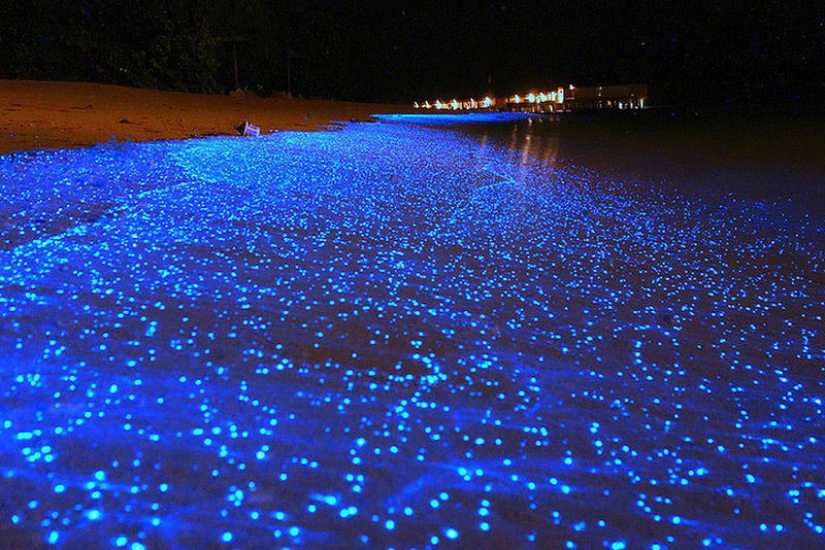

1. This glow creates a phytoplankton — unicellular algae and cyanobacteria. These organisms can produce the process of photosynthesis.
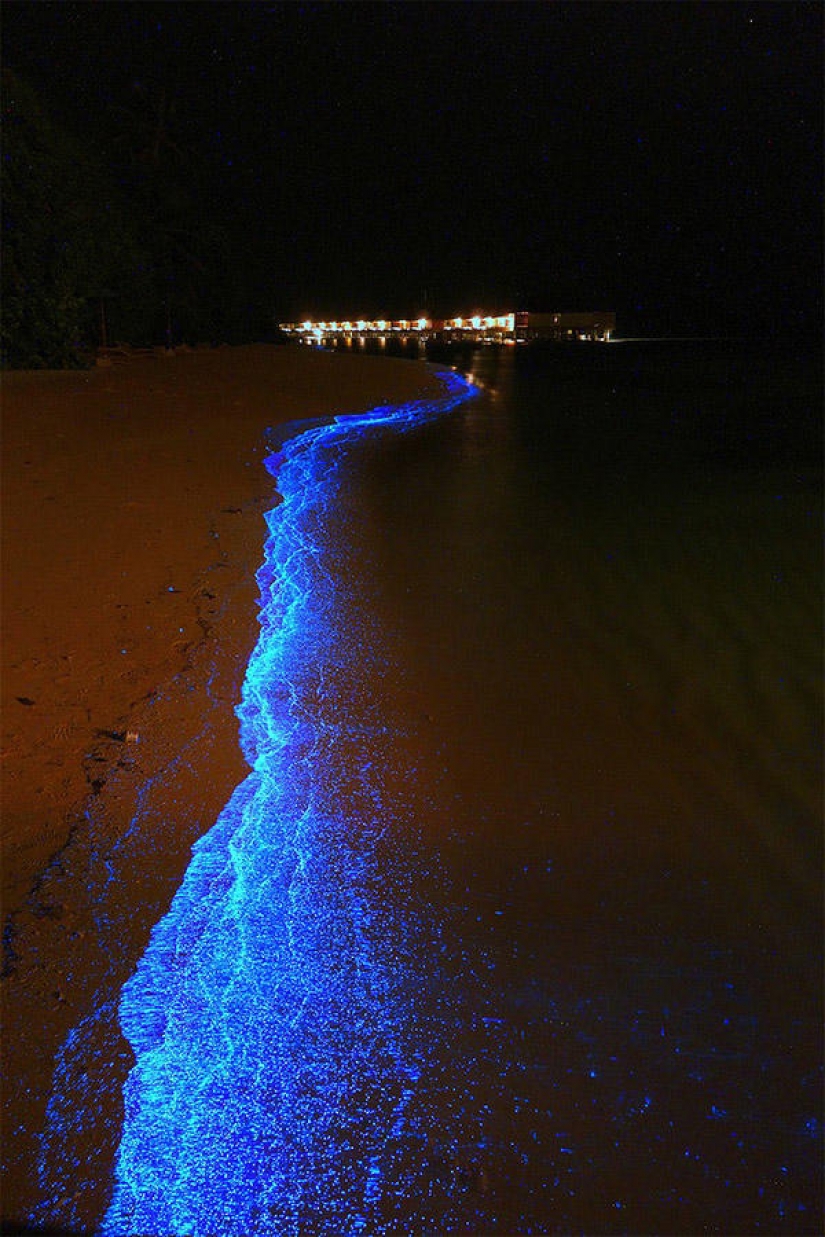
2. These organisms glow with a sapphire light, due to chemical reactions in which the liberated energy is released in the form of light.
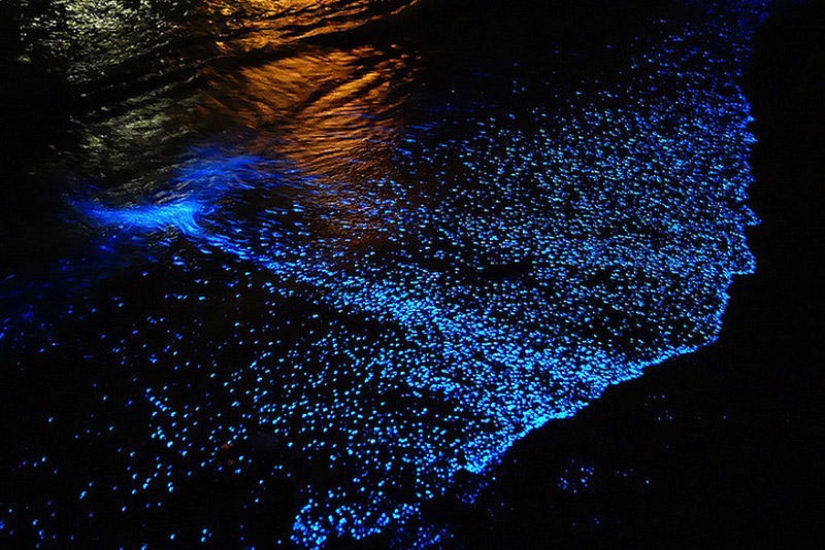
3. Usually phytoplankton glows during stimulation — hitting the obstacle, strong water movement. Also, these signals are a warning sign of the approach of a predator.
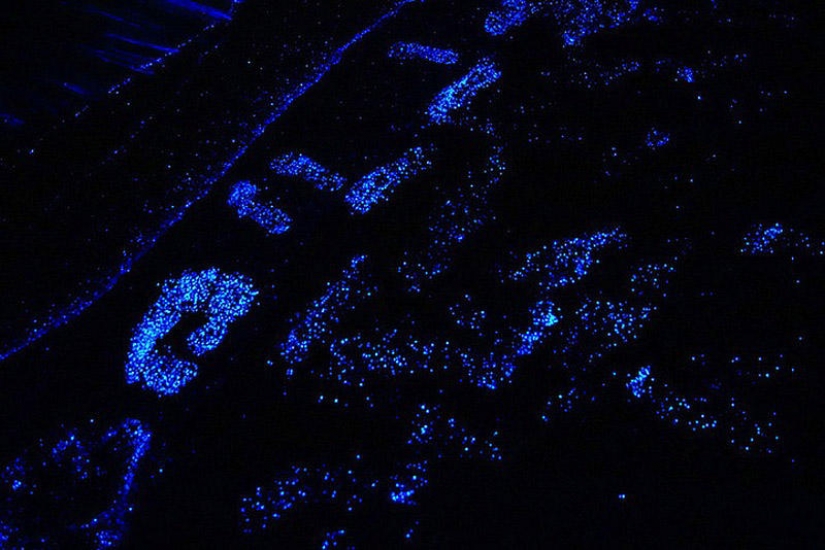
4. The photographer is often asked whether it is real pictures.
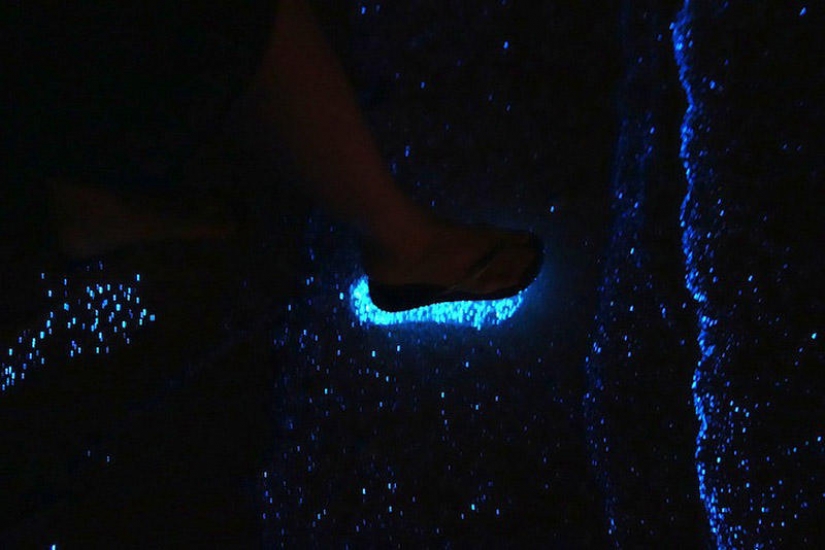
5. He says that they are real, but you'll be lucky if you run into such a pandemonium of bioluminescent creatures in one place.
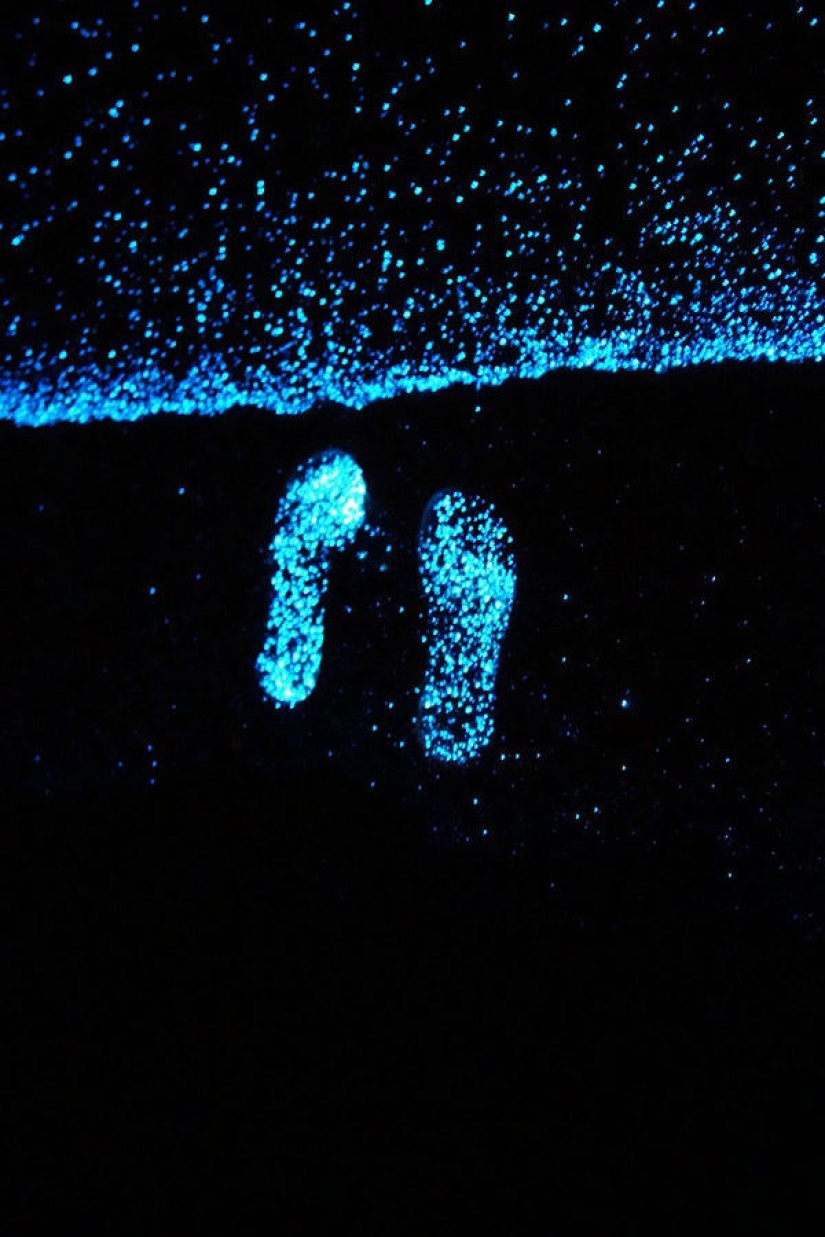
6. He was lucky — he saw this beauty at a Thai restaurant in the Maldives.
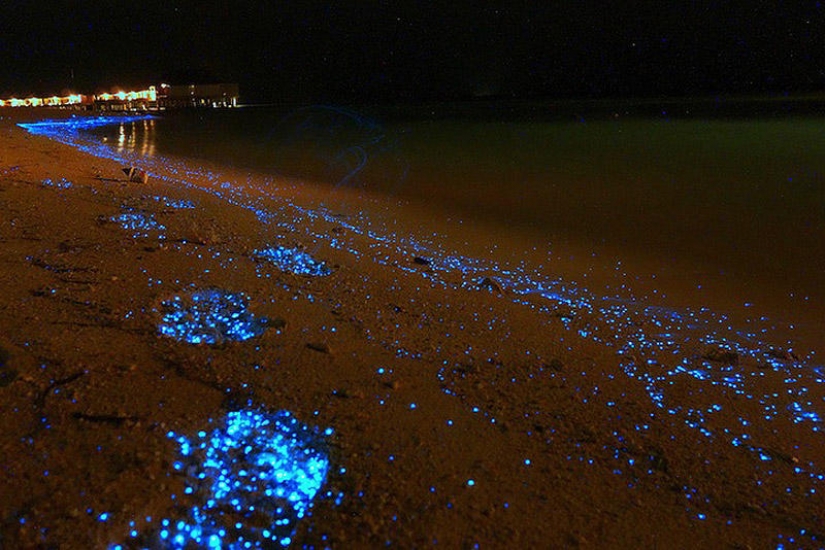
7.
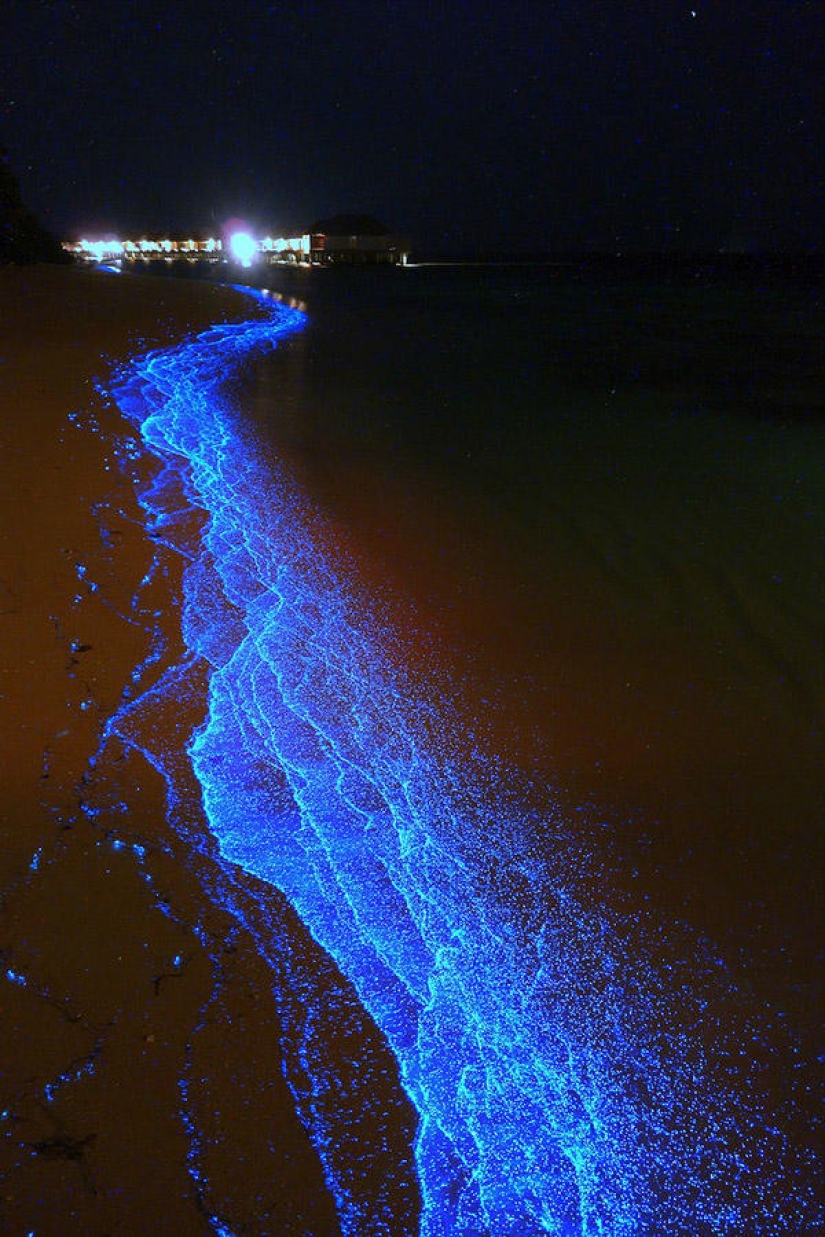
8.
Keywords: Maldives | Ocean | Beach | Light
Post News ArticleRecent articles

It's high time to admit that this whole hipster idea has gone too far. The concept has become so popular that even restaurants have ...

There is a perception that people only use 10% of their brain potential. But the heroes of our review, apparently, found a way to ...
Related articles

Sandy beaches grey, brown or even white shade is quite usual for us. Even rocky beaches with sharp cliffs that attract the bravest ...

Palmateer felicity (Felicity Palmateer) began to photograph stunning mini-movie, which conquers the waves in Hawaii, Fiji and ...

For many of us, summer is, first of all, an opportunity to finally swim in the sea, lake, river or just a pool and sunbathe. In ...

New Year's is a time to surprise and delight loved ones not only with gifts but also with a unique presentation of the holiday ...